
The philosophy surrounding sharpness has changed significantly over the history of photography. Modern sensors and lenses are now capable of capturing a previously unobtainable level of detail, which has resulted in a cultural shift amongst photographers and the users of the photographs that we produce. The expectations of quality – a perceived baseline standard level of sharpness – has increased amongst an ever-more-demanding audience. This means that, where a fundamental skill such as focusing is concerned, it can be quite difficult to hide any flaws in the photographer’s technique.
Correct focus is imperative, not only because blurred images fail to convey detail and act as a distraction, but also because the viewer of a photograph is led by where the plane of focus falls. If misplaced this can incorrectly indicate to your audience where they should be looking within your composition. It is also a professional skill to be able to adapt your approach to focusing for different subjects and genres. Subject distance, speed and direction all influence which focusing method should be employed for the most reliable results. Here we will discuss the benefits and challenges of multiple focusing techniques, describing the philosophy behind each option and how to recognize when – and when not – to put them to work in any shooting situation.
FOCUS ON LANDSCAPES
This story is from the September 2020 edition of N-Photo: the Nikon magazine.
Start your 7-day Magzter GOLD free trial to access thousands of curated premium stories, and 9,000+ magazines and newspapers.
Already a subscriber ? Sign In
This story is from the September 2020 edition of N-Photo: the Nikon magazine.
Start your 7-day Magzter GOLD free trial to access thousands of curated premium stories, and 9,000+ magazines and newspapers.
Already a subscriber? Sign In
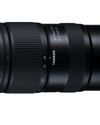
Tamron 28-75mm f/2.8 Di III RXD G2
The original version broke the mould for ‘trinity' standard zooms. The G2 enhances handling and performance further still
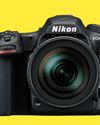
Nikon D500
Nikon's flagship DX-format DSLR is a modern classic. And while it hasn't been out of production for long, it left a hole in Nikon's camera line-up that's never been filled

Laurence Griffiths
With so much sporting action this summer, Laurence Griffiths of Getty Images reveals how to catch every goal at the Euros, details Getty Images' 24/7 Olympics coverage and why he always has a wide-angle ready. Keith Wilson managed to grab him before kick-off...
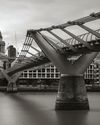
Ghost town
Adam Waring uses ND filters to subdue the hustle and bustle when shooting busy cities

Creative cities
Experienced travel photographer Matt Higgs provides top tips for stunning shots of city sights

If at first you don't succeed...
Tom travels to the other side of the world to have another go at shooting an elusive image and displays the power of his perseverance
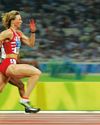
Shoot the summer of sports
Have the Olympics and Euros inspired you to photograph sport? Mike Harris shows you how to score a portfolio of top shots
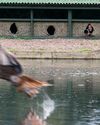
Osprey & prey
Birds of a feather Gary Jones and Leigh Pugh photograph ospreys from a purpose-built hide
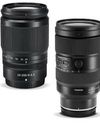
Superzoom lenses
These lenses will have you in for a long stretch, some more than others in the wide-angle to telephoto stakes

Nikon Z 6III
With a revolutionary 'partially stacked' full-frame sensor, the Z 6III fits flagship camera features in an compact enthusiast-level body